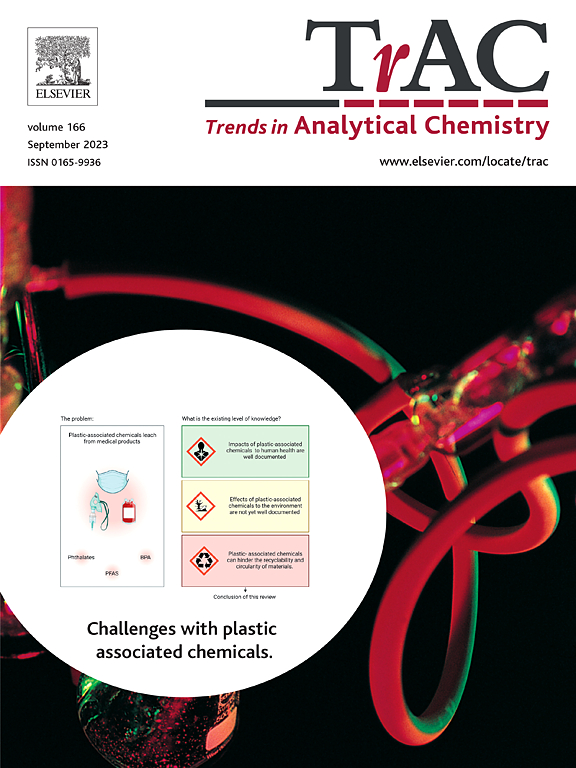表位印迹聚合物在疾病诊断和治疗中的最新进展
IF 12
1区 化学
Q1 CHEMISTRY, ANALYTICAL
引用次数: 0
摘要
由于蛋白质模板的稀缺性和不稳定性,分子印迹聚合物在蛋白质印迹方面面临挑战。表位印迹聚合物(eip)通过使用短肽表位作为模板来解决这些限制,从而能够精确有效地识别目标蛋白。由于这些优点,eip在疾病诊断和治疗方面显示出了巨大的潜力,近年来引起了大量的研究关注。本文综述了EIP在这些领域应用的最新进展。首先,我们根据表位模板的数量和结构特征对表位印迹策略进行了分类。随后,在疾病诊断的背景下,我们系统地评估了eip在癌症、心血管疾病、传染病和免疫疾病中的应用。在疾病治疗方面,我们介绍了eip在信号通路调节、酶活性调节、药物传递和光热治疗中的作用。最后,我们简要讨论了eip在推进疾病诊断和治疗方面的当前挑战和未来前景。本文章由计算机程序翻译,如有差异,请以英文原文为准。
Recent progress in epitope-imprinted polymers for disease diagnosis and treatment
Molecularly imprinted polymers face challenges in protein imprinting due to the scarcity and instability of protein templates. Epitope-imprinted polymers (EIPs) address these limitations by employing short peptide epitopes as templates, thereby enabling the precise and efficient recognition of target proteins. With these advantages, EIPs have demonstrated promising potential in disease diagnosis and treatment, attracting substantial research attention in recent years. This review summarizes the latest progress in EIP applications across these domains. First, we categorize epitope imprinting strategies based on the number and structural features of epitope templates. Subsequently, in the context of disease diagnosis, we systematically evaluate the applications of EIPs in cancer, cardiovascular diseases, infectious diseases, and immune diseases. For disease treatment, we introduce the roles of EIPs in signal pathway regulation, enzyme activity regulation, drug delivery, and photothermal therapy. Finally, we briefly discuss current challenges and future perspectives for EIPs in advancing disease diagnosis and treatment.
求助全文
通过发布文献求助,成功后即可免费获取论文全文。
去求助
来源期刊

Trends in Analytical Chemistry
化学-分析化学
CiteScore
20.00
自引率
4.60%
发文量
257
审稿时长
3.4 months
期刊介绍:
TrAC publishes succinct and critical overviews of recent advancements in analytical chemistry, designed to assist analytical chemists and other users of analytical techniques. These reviews offer excellent, up-to-date, and timely coverage of various topics within analytical chemistry. Encompassing areas such as analytical instrumentation, biomedical analysis, biomolecular analysis, biosensors, chemical analysis, chemometrics, clinical chemistry, drug discovery, environmental analysis and monitoring, food analysis, forensic science, laboratory automation, materials science, metabolomics, pesticide-residue analysis, pharmaceutical analysis, proteomics, surface science, and water analysis and monitoring, these critical reviews provide comprehensive insights for practitioners in the field.
 求助内容:
求助内容: 应助结果提醒方式:
应助结果提醒方式:


